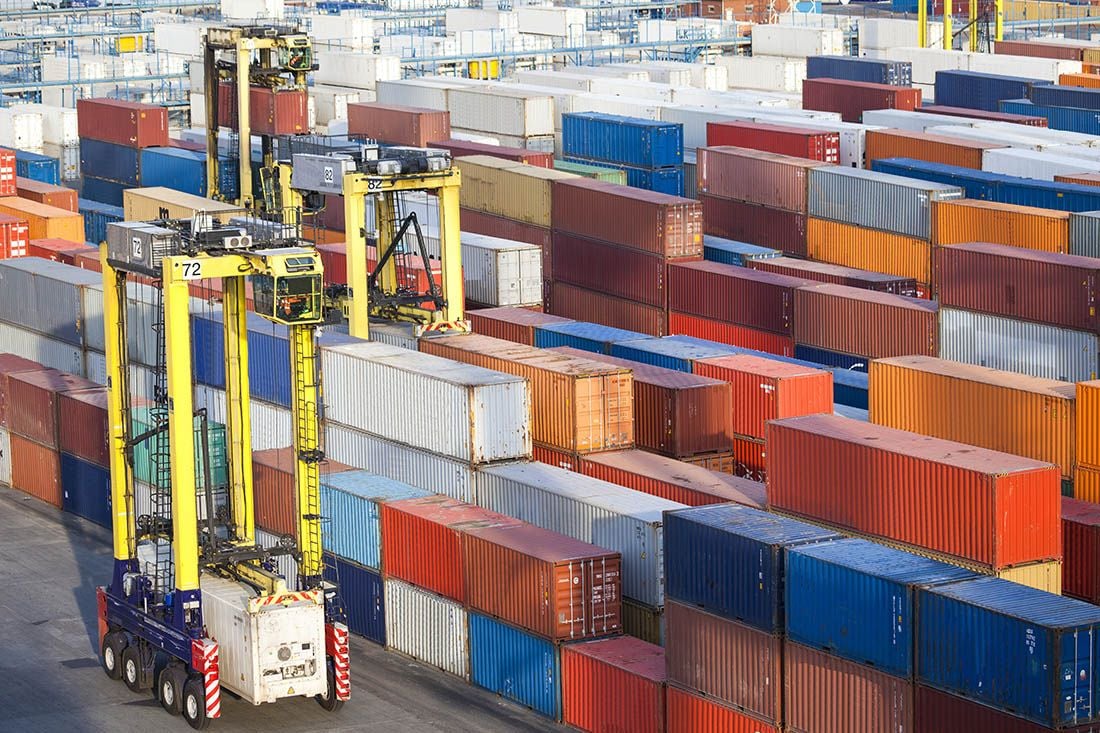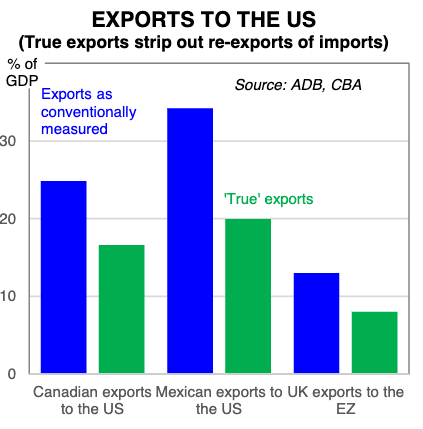
Containers at the UK's largest port in Tilbury, Essex. Image © Adobe Stock.
Currency analysts confirm the British Pound looks relatively well insulated to U.S. import tariffs, suggesting the currency forms a hedge in the current 'tariff trade' environment.
The Pound was one of the best-performing G10 currencies on the day U.S. President Donald Trump confirmed and then reversed tariffs on Canada and Mexico. It maintains that outperformance into Tuesday as U.S. tariffs on China come into force and China announces its retaliation.
"Sterling dodges tariff bullets," says Kit Juckes, lead FX analyst at Societe Generale.
"We remain constructive versus the bulk of G10 FX on our view that GBP is in the process of a secular recovery," says Kamal Sharma, FX strategist at Bank of America. "Downside risks have increased since the start of the year, but we think that much of the bad news is now priced in and there has been a subsequent cleansing of long positioning."
Traders have exited long positions in Sterling and piled into bets to the downside. Recent gains in the Pound suggest speculative currency traders did not anticipate this trade war resilience.
"Hedge funds raised GBP short positions last week to 10.5% of open interest, the highest since last April," explains Juckes.
The 0.62% daily gain in GBP/EUR was unusually large, suggesting a good deal of any reduction in speculative positioning occurred against the Euro.
Tariffs against Canada and Mexico were avoided due to last-minute concessions from the two countries, while China never really had an exit route.
The European Union will come into Trump's crosshairs next, posing downside risks for the Euro.
"The UK gets off lightly compared to other regions, like the EU," says Robert Wood, Chief UK Economist at Pantheon Macroeconomics. He thinks the UK would feel minimal direct effects from U.S. tariffs, as only 15% of British goods exports go to the U.S.
On this basis, Pantheon Macroeconomics estimates a 25% tariff on UK goods exports to the U.S. would cut British exports by only 0.2% of GDP, assuming price-elasticity of demand of -0.4.
One X user quipped on Monday that Trump would struggle to tariff UK goods because he will struggle to find anything that the UK actually produces, referencing the multi-decade decline of UK manufacturing.
There is some truth to the joke, as ONS figures for 2023 show the UK imported £57.9BN of goods from the United States and exported £60.4BN of goods, making for a neutral trade balance.
The UK does operate a trade surplus in services with the U.S., importing £57.4BN of services and exporting £126.3BN. However, services tend to fall outside the scope of tariffs, and it would be unusual for Trump to target deficits in services.
Image courtesy of Commonwealth Bank.
The Pound is attempting to claw back early 2025 losses, having fallen against all major peers in the first two weeks of the year.
Sterling is particularly sensitive to global risk sentiment and it's early 'tariff trade' outperformance could yet falter if global markets start to suffer amidst an escalating trade war.
That war started on Tuesday when China responded to the imposition of U.S. import tariffs with its own set of measures.
In response to America's 10% tariff, China will levy new tariffs on a range of American imports, including a 15% levy on coal and liquefied natural gas. Crude oil, agricultural machinery, large-displacement cars and pickup trucks now face a 10% tariff
A number of U.S. companies were sanctioned as "unreliable entities", including Calvin Klein and Tommy Hilfiger owner PVH, as well as Illumina (a gene sequencing company).
The Chinese measures announced also include export control on tungsten-related materials, a crucial raw mineral of which China produces about 80% of the world's supply.
Equity markets and commodities are softer on the developments. If the selloff grows in the coming days and weeks we might see GBP come under pressure against safe-haven names like the Dollar, Yen and Franc. It would however likely outperform AUD, NZD and even the EUR given the tariff threats facing the Eurozone.

